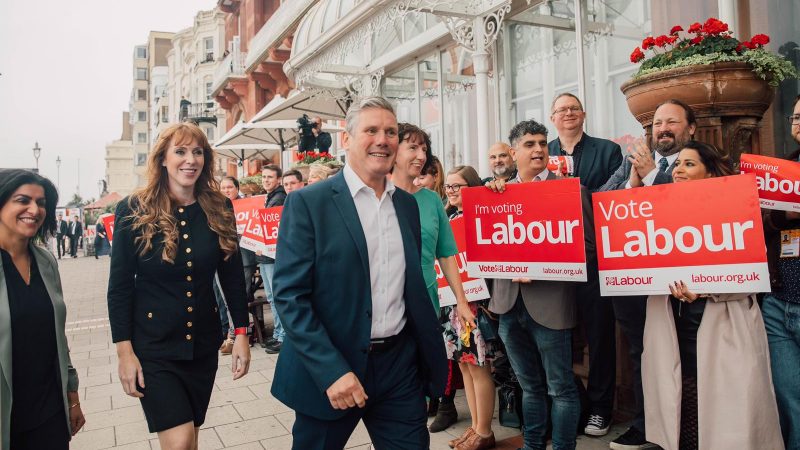
This Tory government has run out of road, ideologically and practically. Serious economic damage has already taken place but the effects for working people in this country will become a lot worse unless we have a general election and elect a transformative Labour government.
Despite the exposure of the incoherence and immorality of her market fundamentalist approach, Liz Truss is clinging on. As long as she and any successor remain in power, they are a clear and present danger to the trade union movement – both in their threat to workers’ rights and their agenda for further drastic cuts to public spending on top of 12 years of austerity.
In response to trade unions calling action to defend their members falling living standards, the government is accelerating further anti-union legislation. The provisions they are intending to introduce would undermine the effectiveness of strike action to maintain pay rates in a time of soaring inflation, and to maintain quality jobs though decent terms and conditions at a time of austerity 2.0.
Key anti-union proposals that are due to be debated in parliament within days include: minimum service levels during strikes in key sectors including transport, a raising of the thresholds for strike action to 50% of those entitled to vote, doubling the minimum notice time for taking action, limiting the mandates for action and increasing restrictions on picketing.
This, in addition to threats to bring in emergency regulations to stop strike action and restricting facilities time and check off for public sector unions, will have a material effect on the effectiveness of industrial action taken for legitimate reasons.
These proposals are all extensions of the current provisions of the Trade Union Act 2016. As Jeremy Hunt plans for his budget cuts, and when the public is saying enough is enough and demanding better, the government is repressing our right to take industrial action – a key expression of democratic resistance. When the Tories are in trouble, they always scapegoat trade unions.
There is an alternative. A new deal for working people is needed. The promises in Labour’s New Deal for Working People show the way. A Labour government can support the rebuilding of a strong trade union movement that can defend and improve people’s working lives.
Labours new deal on employment rights not only promises a sea change in the world of work for employees, it also provides the basis for the renewal of our country on a socially environmentally and economically sustainable basis. The experience of organised workers in their own industries should be listened to. We know what works – and what doesn’t!
The New Deal for Working People is the changes to employment rights agreed between Labour’s affiliated unions and the party. These are built on the commitments made in the 2017 and 2019 Labour manifestos. Following the launch at the 2021 Labour Party conference by Angela Rayner, Keir Starmer has committed to introduce these changes within 100 days of the election of a Labour government.
Key changes in the new deal include allowing access workplaces to build up union organisation in sectors where, for too long, there has been a democratic deficit in representation of worker’s interests. It includes the introduction of electronic balloting for industrial action so the voices of the majority of the workforce are quickly collected, and the modernising of arrangements for recognition that allow reasonable requests from groups of workers to conduct a ballot and avoid the obstructive actions of rogue employers.
These changes can help build accountable union organisation from the bottom up. Alongside commitments for fair pay agreements this agenda could usher in an era of stronger collective rights in the workplace.
We must ensure we represent the concerns of all workers, including those who are marginalised or who experience disproportionate injustice in the workplace and in society. The voices of disabled workers, Black workers, LGBT+ workers and women workers must be heard within our movement itself. This is also key for progressive social change. Pushing forward to a fairer and more equal society, grounded in the experiences of solidarity in the workplace, means that we avoid Tory attempts to divide and rule that hold us all back.
We are at a crisis time – but also a time of opportunity. The popularity of unions and the acceptance of our place in civil society has not been so high for a generation. Over the coming year, the priorities for our movement must be to reach out to all workers – whoever they are or wherever they are.
We must defend union organisation in the public sector and extend our reach within the private sector to build our collective strength across the country. The trade union movement has a central role to play in the transformation of the world of work and therefore our society.




More from LabourList
‘Hyperlocal messaging can help Labour win elections: Here’s how’
Unite votes to re-examine relationship with Labour and suspend Angela Rayner
Ex-Cooper aide: ‘Keir’s ground-breaking deal with France suggests his migration approach could be bearing fruit’